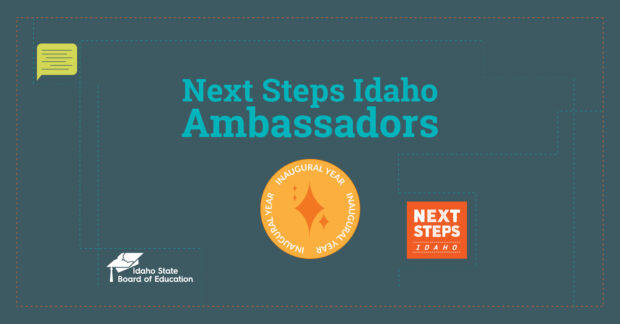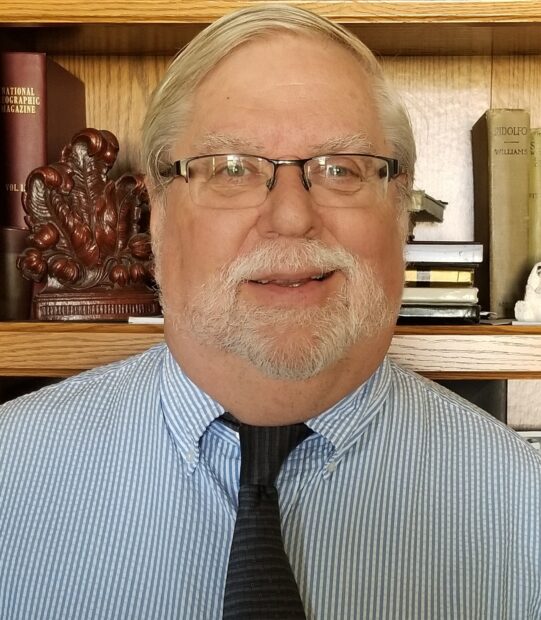
Just before the coronavirus pandemic struck Idaho, state education leaders took on a sizable task: connecting dozens of college and career advisors across more than 80,000 square miles.
The State Board of Education hoped to create a support network for Idaho school counselors that would link staff between rural and urban schools and give state officials an ear on the ground in far-flung parts of Idaho in an effort to improve college and career readiness.
“Being a counselor is a very isolating job, even in the largest high schools,” explained Byron Yankey, the State Board’s college and career advising program manager. There are “huge parts of the state where travel is a barrier,” Yankey said, preventing counselors from attending conferences or meeting people who perform the same jobs.

The state’s solution came to life at the start of the 2019-2020 school year as the Next Steps Idaho Ambassador program, an expansion of Next Steps Idaho, a college and career readiness effort. Through the program, a group of college and career counselors were hired to network with other counselors in nearby school districts with aims of creating a professional support system.
Since its inception, the ambassadorship has brought aboard counselors with varying educational backgrounds to connect with other counselors across the state using Zoom events, Facebook forums and discussions about issues facing counselors and K-12 writ large.
The fleet of ambassadors, all of whom are college and career counselors, doubled in size from four to eight members this school year. Each receive a $500 annual stipend for participating.
Though the program is on the rise, it faced a rocky start, and it’s nowhere near the size administrators want it to reach.
“The pilot totally got gobsmacked by the pandemic,” said Joan Cleary, Next Steps Idaho’s outreach coordinator.
Some ambassadors have drawn dozens of counselors into events and meetings, Cleary said, but “it’s nowhere near the industry penetration that we actually need to be a force.”
But a silver lining accompanied the program’s slow beginning.
Counselors’ added roles as teachers or janitors in some smaller districts allowed them to feed the State Board information about challenges schools faced during the pandemic, Cleary said.
“They were an incredible barometer for what was actually happening at schools, when everything was getting shut down. We just had no idea what was going on,” said Cleary.
Yankey hopes the program will continue to serve as “a megaphone” for educators’ concerns.
The State Board hopes that at full-bore, the program can employ up to 24 ambassadors, four for each region of the state. But that end goal is likely years out. Cleary would consider an expansion to two ambassador-counselors per region by 2023, 12 total, “a success.”
While this year’s ambassadors were all either recruited or referred by past participants, the State Board hopes to attract enough interest that future prospective ambassadors have to apply to nab the role. For now, low levels of expressed interest are hampering that goal — an issue organizers attribute to lack of awareness about the program.
State Board staffers see that boost in participation as the linchpin to strengthening counselors’ social channels.
“Teachers have appreciation holidays, and acres of funny stress-relieving memes online, and colleagues going through the same joys/struggles at their school,” Cleary wrote by email. “College and career readiness professionals who work in high schools or middle schools don’t typically have that. It can be isolating and overwhelming.”
With time, and a new batch of online resources, organizers hope the pushback against isolation can ease social and emotional recovery from the pandemic.
“It’s the kind of Mr. Rogers approach,” said Yankey. “Let’s create that neighborhood and see how we can knit people together.”
Idaho Education News Data Analyst Randy Schrader contributed to this report.
